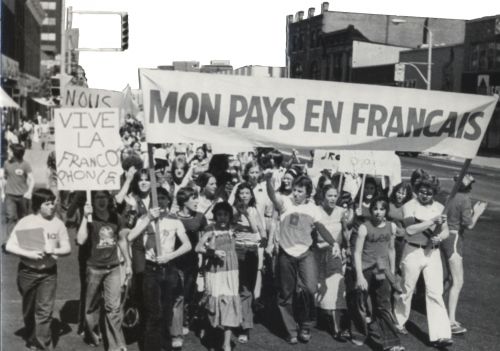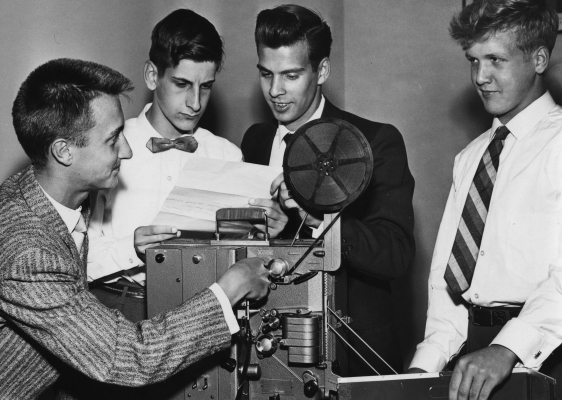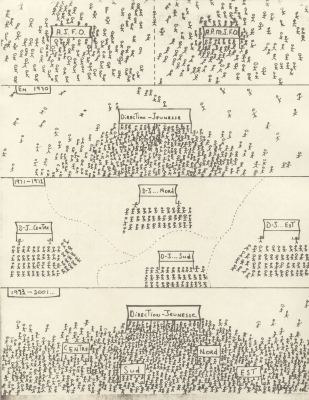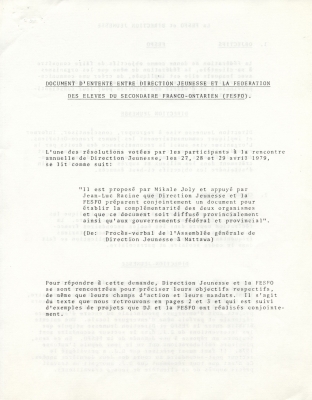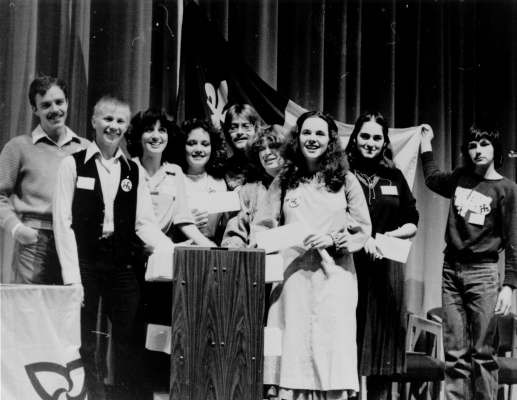The 1960s represent a turning point for Francophone youth in Ottawa. In the capital, as elsewhere in the world, the rise of counterculture and participatory democracy leads many young baby boomers (born between 1945 and 1960) to question the traditionalism and the elitism of their elders. This is the era of major student demonstrations, psychedelism, the arrival on the scene of hippies and the criticism of authority in all its forms. The Association de la jeunesse franco-ontarienne (AJFO), founded in 1949, struggles to adapt to these new realities.
It is predictable. Established with the support of organisations such as the Association canadienne-française d’éducation d’Ontario and the Ordre de Jacques-Cartier, the AJFO has always shared the traditional values of these adult movements. In May 1968 – an epic moment, if ever there is one – young dissenters establish the Association provinciale des mouvements de jeunes de l’Ontario français (APMJOF), an organization which claims to be more demanding. A serious rivalry develops between the moderate AJFO and the APMJOF. For two years, these youth associations engage in a shadow war until, exhausted by ongoing conflict, they agree to merge. In 1970, their reconciliation gives birth to Direction-Jeunesse (DJ).
DJ wastes no time in billing itself as one of the Ottawa Francophone community’s most committed and militant leaders. Following the example of AJFO, DJ’s work carries it beyond the capital, reaching into the major Francophone regions of the province. It balances the dual mandate to increase youth sense of belonging to the Franco-Ontarian community and to encourage youth initiative. But it is undeniably in the political arena that DJ wields the greatest influence. The organisation is particularly active in the field of education, where it advocates in support of high schools, community colleges and a French-language university. In 1979, DJ publishes Le Complexe des différents [sic] a study which highlights the marginalization of Francophones in the province’s bilingual universities. In the spring of 1992, DJ organizes a major demonstration at Queen’s Park to demand the creation of a French-language community college network. Until its disappearance in 2002, Direction-Jeunesse is one of the most ardent defenders of Ottawa and Ontario Francophones.
“Explosion jeunesse 1978”, rally of French Canadian youth outside Quebec took place on May 26 and 27, 1978. Over one thousand young people participated in the march on Parliament Hill to demand clear and precise answers concerning the development of Francophone communities outside Quebec, Ottawa.
Source: University of Ottawa, CRCCF, Fonds Fédération de la jeunesse canadienne-française (C82), Ph163-A-3.
